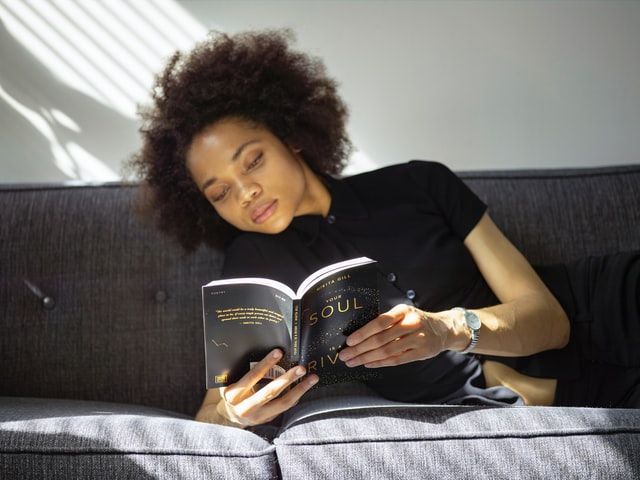Psychotherapist Michelle Scott shares her thoughts on how our young people have been impacted by the widespread changes during lockdown, and how to talk with teens
Keep it simple, she says, and take a little inspiration from an astronaut...
From her dining table in Edinburgh, Psychotherapist Michelle Scott is sharing the changes and challenges coronavirus has brought about for her clients and for herself.
While the UK is on lockdown, Michelle - like over 12,450 other mental health practitioners on Counselling Directory - continues to provide therapy online and by telephone. There is some reassurance, she says, in the continuation of conversations, even though the methods and location may have changed.
How teenagers have been impacted
Change is the thread that weaves itself into every conversation we have at the moment. Our lives and the way we operate on a daily basis has changed immeasurably and while this is difficult for us as adults, teenagers - an age group Michelle has vast experience of working with - have also been significantly impacted.
“The word that keeps coming up a lot is ‘surreal’. It seems surreal. They can't quite believe it's happening,” Michelle explains. “Teenagers have had such structured lives and they haven't had to really think about anything, their timetable has been provided for them. We encourage our young people to work really hard towards something, and suddenly that's been taken from them.

Michelle Scott
“A lot of them feel quite duped by life, they say: ‘wait a minute, I was doing everything you told me to do and now I'm not getting the reward. I'm not having the chance to show what I can do in these exams.’ So it's really impacting them quite deeply.”
Missing out on time with friends, as well as the lack of structure and certainty about the future, has an effect too - and Michelle explains that for teenagers, adolescent relationships are often about finding tribes, validation and their sense of identity. Missing out on these, as well finding themselves firmly rooted back at home and in the permanent role of a child, can bring about some challenges in family units.
Talking to teenagers - take inspiration from an astronaut
When answering how to help our teens, Michelle is clear that parents and carers have to look after themselves too, in order to support the whole family. “I think first and foremost, look after yourself. Use your networks. One of the greatest indicators for better mental health is having a community and being able to ask for help. And that's so important right now - know that you're not alone. Speak to your friends and your parent friends and share what's happening, get tips, and use those networks.”
Keeping it simple, Michelle shares, is the best way to approach conversations and supporting teens through this time. “I watched this amazing little video this morning from Chris Hadfield. He knows how to handle isolation, having been an astronaut. He says, establish what the real risk is, deal with what you really know is true, establish your mission and look after your spaceship.”
“I think it'd be a great thing for parents and young people to watch and to come together as a team to consider what he says.”
Create a safe structure and avoid the need to achieve
With the structure of school missing from their lives, Michelle believes that parents can gently introduce some much-needed certainty. “Children don't necessarily have the capacity to structure themselves because they don't have to, so parents can really help with that. They can help establish a routine by keeping things as familiar as possible for them.”
Don't try and change too many things. Don't try and achieve too much
There is a caveat to this however. “Don't try and change too many things. Don't try and achieve too much,” Michelle explains, noting that social media comparison of homeschooling and parental productivity should be avoided at all costs.
Finally...fun!!
With the rolling news and constant talk of illness and death, the world can feel like a fairly dark place at the moment, so finding time and opportunities to introduce some lightness into each day is important.“I think even adolescents at this time, they probably will be regressing a little bit because of the anxiety,” Michelle offers.
“Revisiting some of the things you used to do together as a family when your children were younger, games or projects, will be really important and can be really comforting.
“Even if adolescents turn their noses up at it a little bit, I would guarantee probably most will get into it, they'll enjoy it and they'll like having that, that sense of comfort.”
Listen to Michelle’s podcast and further thoughts on finding space and prioritising your own self care.


Comments